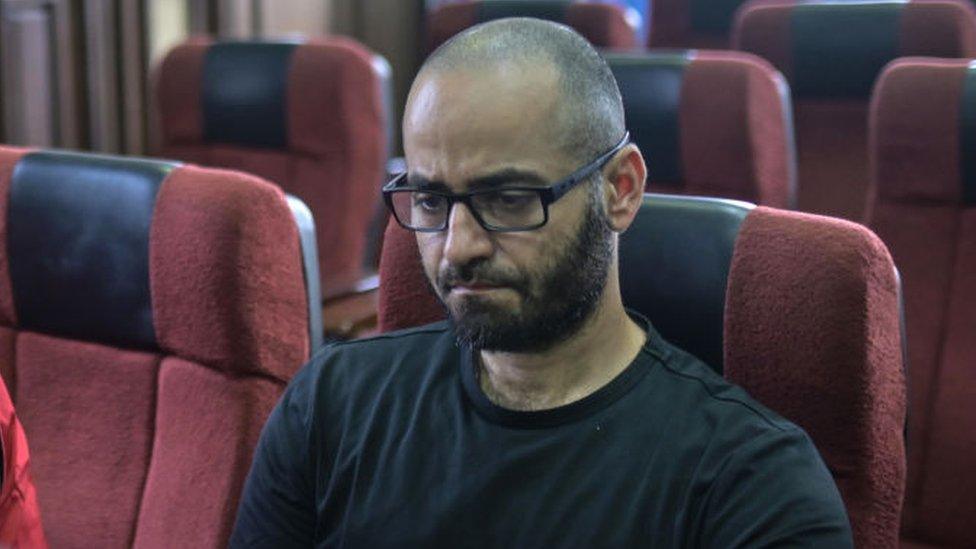Nigeria Binance dispute: Cryptocurrency official denies money laundering
- Published

Tigran Gambaryan has been detained in Nigeria since February
An executive from cryptocurrency firm Binance has pleaded not guilty to money laundering charges in a Nigerian court.
US citizen Tigran Gambaryan was arrested in February, along with his colleague Nadeem Anjarwalla, a British-Kenyan dual national.
Their detention came as Nigeria accused Binance of being behind the country's economic turmoil.
Two weeks ago Mr Anjarwalla escaped from custody and his whereabouts are unknown.
On Monday, Mr Gambaryan rejected five counts of money laundering filed against him by Nigeria's Economic and Financial Crimes Commission (EFCC).
After the hearing, he was transferred to Kuje Correctional Centre, a prison in the capital, Abuja. The facility has in the past held inmates ranging from jihadists to politicians.
Mr Gambaryan and Mr Anjarwalla had previously been detained in an unknown location.
In a statement released after Monday's hearing, Mr Gambaryan's wife, Yuki, said: "I am beyond heartbroken that my innocent husband is being sent to a prison that houses known terrorists and murderers... it is beyond unacceptable that this is how they are treating a completely innocent man."
A Binance spokesperson said the charges against Mr Gambaryan were "meritless".
They told the BBC: "We are deeply disappointed that Tigran Gambaryan, who has no decision-making power in the company, continues to be detained."
The EFCC had accused Binance - understood to be one of the most popular cryptocurrency platforms in Nigeria - along with Mr Gambaryan and Mr Anjarwalla, of laundering $35.4m (£28m).
In February, Mr Gambarayan, who is in charge of financial crime compliance at Binance, and Mr Anjarwalla, who is Binance's Africa Regional Manager, were detained after arriving in Nigeria for meetings to discuss the platform's operations in the country.
Binance was later that week ordered to pay a fine of $10bn (£8bn).
The government accused it of currency speculation and fixing exchange rates, leading to the free-fall of the local currency, the naira.
The weakening of the naira, alongside food inflation and the soaring cost of living, has sparked an economic crisis in Nigeria.
Binance is not alone - Nigeria's authorities have been clamping down on cryptocurrency platforms in general over allegations they are being used for money laundering and financing terrorism.
As well as money laundering charges, Binance and the two executives also face four counts of tax evasion, filed by the Federal Inland Revenue Service (FIRS).
After Mr Anjarwalla fled the country, Nigerian authorities said he had escaped with a "smuggled passport", but a family source said he had left by "by lawful means".
Nigeria said it was "working with Interpol for an international arrest warrant on the suspect".
As of Monday, Mr Anjarwalla was not on Interpol's red notice list for "internationally wanted fugitives".